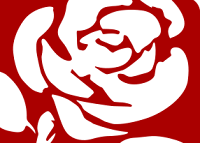Sir Michael Lyons has published the much anticipated
final report from his independent Inquiry into the future role, function and
funding of local government - Place-shaping: a shared ambition for the
future of local government. He said:
"I believe that local government is an essential
part of our system of government today. Local government's place-shaping role -
using powers and influence creatively to promote the well-being of a community
and its citizens - is crucial to help improve satisfaction and prosperity
through greater local choice and flexibility.
"In my final report, I call for a new partnership
between central and local government. This needs to be based on changes in
behaviours from all tiers of government to achieve a stronger relationship -
creating a shared ambition for the future. Central government needs to leave
more room for local discretion and recognise the value of local choice; while
local government needs to strengthen its own confidence and capability, engage
more effectively with local people, make best use of existing powers, and stop
asking for central direction.
"I have also concluded that Council Tax is not
'broken', but is seen as unfair
and has been put under too much pressure."
Sir Michael presents a mosaic of reforms which tackle a
complex set of problems. They include essential reforms in the short-term to
tackle the most urgent problems and more radical reform options for future
governments.
Short term
recommendations include:
Greater flexibility for local authorities to
place-shape with less control from the centre –
By reducing specific and ring
fenced grants;
A new power to levy a
supplementary business rate in consultation with business,
And a new power to charge for
domestic waste to help manage pressures on Council Tax,
And an end to capping of
council tax;
Changes to improve
fairness of council tax,
Recognising that council tax
benefit is a rebate,
Automating the system to
ensure 1.8billion pounds in unclaimed benefit helps the poorest households,
And raising the savings limit
for pensioners to 50,000 pounds;
Improving transparency in the funding system by
being clear about the contribution made by national taxation, and ensuring a
more independent voice to inform Parliament and the public; and improving
incentives for local authorities to promote economic prosperity and
growth, initially through reform of the Local Authority Business Growth
Incentives Scheme.
In the medium term
the Government should:
Revalue council tax to update the tax base and improve
fairness; at the same time, reform council tax by adding new bands to reduce
bills for those in the lowest value properties, paid for by increased bills for
those in higher value properties paying more - there should be no increase in
average Council Tax bills as a result of this; Consider assigning a fixed proportion of income tax to
local government; find ways to improve the incentives within the grant
system; and Consider introducing the power to levy a tourist tax if
local government makes a strong case based on local public support - this would
be appropriate only in some areas.
In the longer term, future governments could consider
more radical reform options such as local income tax or re-localisation of the
business rate, but these reforms may require greater public support and
understanding than currently exists.
Sir Michael
concluded:
"Some of these changes can start immediately, building
on current changes to the performance framework and Local Area Agreements;
others can be taken forward in the Comprehensive Spending Review; whilst some
require primary legislation. This package of reforms is designed to set out a
developmental approach towards a more devolved and ambitious future for local
government, based on improving relationships between central and local
government, better local choices, more effective management of pressures, and
greater public trust in the system as a whole."
What’s your view?

